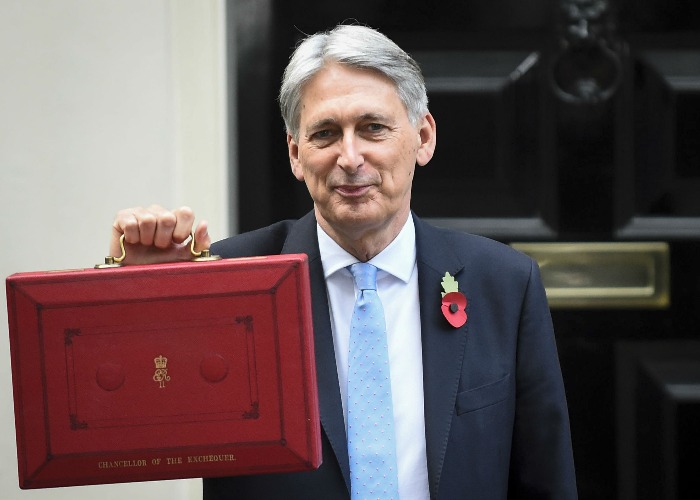Opinion: 3 key issues Hammond's Budget left out

How Philip Hammond saved pensioners, ignored savers and put off – but didn’t eliminate – the need for tax hikes.
Take it from someone who listened to the full 74-minute speech: this year’s Budget was dull.
Ignoring its low points (tedious jokes about tax "relief" for public toilets and Labour’s John McDonnell "falling flat on his face") the main announcements of Philip Hammond’s speech, on NHS spending and fuel duty freezes, had already been revealed beforehand.
The increase in the Personal Allowance a year early was a welcome surprise, but not a huge one.
Yet Hammond’s decision to leave some areas untouched – namely pensions and savings – is just as important as what the Budget did cover.
LoveMONEY has already covered what’s changed in this Budget; now it’s time to look at what wasn’t covered, and why it matters to you.
Read our full coverage of the Budget here
No news is good news for pensions
Remember when the chancellor said pension tax breaks were ‘eye-wateringly expensive’?
Hammond made that claim just three weeks ago but the Budget contained very little about pensions.
For pension savers, this is good news: there were no cuts to pension tax relief and no limit to the Lifetime Allowance, which instead will rise alongside CPI to £1,055,000 in April.
The Budget could, admittedly, have been even more generous.
Some commentators had called for scrapping of the Lifetime Allowance limit, whilst women born in the 1950s who have had to wait later for the State Pension weren’t offered anything in the Budget, despite protesting in Parliament.
Self-employed people, meanwhile, will have to wait until later this year to find out what, if anything, the Government will do to encourage them to save.
Pensions aren’t an issue that will go away, says Tom McPhail, head of policy at Hargreaves Lansdown: “Wider reforms of the pension system are needed, though it should be conducted in a measured way which promotes retirement saving, rather than a smash and grab to fill fiscal holes.”
£300,000 pension pot: how to get there in your 20s, 30s and 40s
No news is bad news for savers
Recent Budgets have seen the Government at least attempt to make saving more attractive.
Yet they appear to have given up, with no announcements of new ISAs or bonuses for savers.
Is it even a #Budget if we don't get another ISA? https://t.co/xRXn2SWEQg
— Felicity Hannah (@FelicityHannah) October 29, 2018
Hammond appears to have ignored Tory MPs and the Scottish National Party, which had called for Lifetime ISAs to be scrapped.
These accounts can give first-time buyers a 25% bonus on their savings, but if the money is withdrawn for another reason, or for the wrong sort of property, a 25% charge means savers could end up with less money than they started with.
Richard Stone, chief executive of The Share Centre, has criticised the Budget as ignoring growing wealth inequality: “while the Government clearly expects people to have greater scope for saving and investing there were no further encouragements to do so.”
A reduction in the minimum investment for Premium Bonds – down from £100 to £25 – and a pilot on extending prize-draw savings to credit unions is hardly a stable base for long-term saving.
More useful is the Help to Save account, launched back in September, but it will only help a few people.
With the vast majority of savings accounts lagging behind inflation – beyond a handful of long-term fixed-rate bonds – the Budget has not helped savers who will see their savings continue to be eroded.
Top savings accounts: where to find the best rates for your cash
No news on extra taxes
Whilst predictions for this year’s Budget were generally hopeful, there were the usual worries about extra taxes.
Some Tory backbench MPs had called for the Personal Allowance increase to be postponed; environmentalists had called for a tax on single-use plastic and, in June, Hammond warned that “across the nation, taxpayers will have to contribute a bit more in a fair and balanced way to support the NHS we all use.”
None of these taxes have come to pass, partially down to public finances performing better this year than most expected.
It was so good, according to the Office for Budget Responsibility, “that on its own would have put the Government on course to achieve its objective of a balanced budget for the first time.”
Yet this improvement has been “swallowed up” by the Budget, said the OBR, namely by the extra £20.5 billion funding injection into the NHS.
You can see the effect of the Budget in the OBR's graphs (click on the graph to expand and for more detail).
The OBR now doesn’t expect the Government to meet its deficit reduction targets for 2022-23 – unless, of course, it raises taxes in future Budgets.
That’s not confirmed of course, because the next five years will see huge changes, not least Brexit. But putting off taxes today could lead to taxes tomorrow.
20 ways to pay less tax: cut your Income Tax, Council Tax, and Inheritance Tax
Comments
Be the first to comment
Do you want to comment on this article? You need to be signed in for this feature